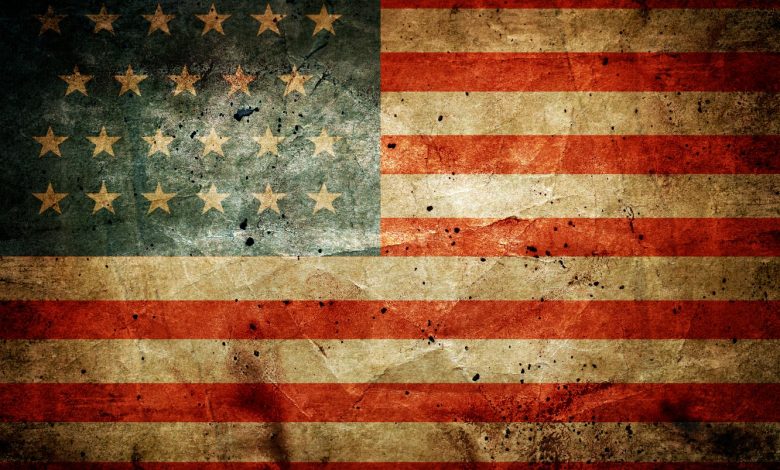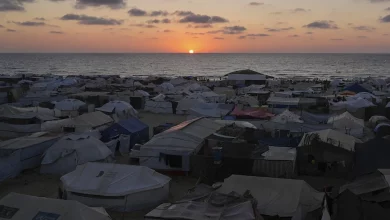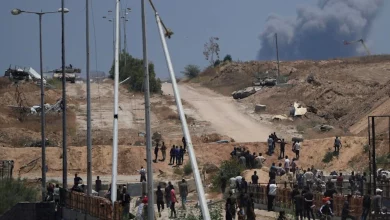US Academician: Americans Facing Demise of “American Dream”

Jim Kavanagh, journalist and political commentator, says under the current economic conditions and social diversity in the US, the citizens find it very hard to sustain optimism about the future.
Speaking in an interview with FNA, Professor Kavanagh said, “It is disgraceful that the government has not instituted serious programs of income replacement and full healthcare for the millions of people who have been forced out of work and have no other means of support. I—and I think anyone—would expect this situation to lead to some kind of social explosion. There is certainly no appealing to these people to stay calm on the basis of “unity” with the billionaires whose wealth has increased by more billions of dollars during this crisis.”
Jim Kavanagh is a former college professor and New York City native and denizen. He is a political and cultural analyst with a left-socialist perspective. His articles are published by CounterPunch, Op-Ed News, The Greanville Post, Dandelion Salad, and various other websites. Professor Kavanagh is a Frequent guest on The Critical Hour and By Any Means Necessary on Radio Sputnik.
Below is the full text of the interview:
Q: Donald Trump has made many remarks against China, Muslims, African Americans and Mexico. It seems from 2016 to 2020, many US residents had at least a reason to be worried for. Has this left room for the nation to remain united?
A: China is being scapegoated for a number of problems—not only the coronavirus, but also the decline of American manufacturing jobs. Of course, China did not create the virus or the poor American healthcare system that struggled to deal with it, nor did China force American businesses to move their operations to China in search of greater profits. This is classic—and frankly silly—scapegoating, an attempt to blame some external villain for problems created by internal actors and structures.
The blaming of Muslims for so-called “terrorist” violence has been a constant since 2001, though it has played a less significant role in our recent political turmoil. The plight of African-Americans as targets of excessive police violence has been front and center in recent months. It is a constant stain in American society, and it will continue to be a focus of protest and upheaval.
The situation of African-American, Latino, and poor communities throughout the US has certainly been exacerbated by the Covid-19 crisis, which has left many people without jobs and healthcare, and facing eviction from their homes. It is disgraceful that the government has not instituted serious programs of income replacement and full healthcare for the millions of people who have been forced out of work and have no other means of support. I—and I think anyone—would expect this situation to lead to some kind of social explosion. There is certainly no appealing to these people to stay calm on the basis of “unity” with the billionaires whose wealth has increased by more billions of dollars during this crisis. It is a remarkable aspect of US society and culture that there has not yet been such a social explosion, and there may not be.
Q: One may ask were they the supporters of the candidates who clashed? Or probably opponents of the candidates? In other words, were the battling sides fighting for their candidates, or against the rival candidate?
A: The conflicts we have seen recently are not really between the two main political parties—both of which have similar positions on most major issues—but between the supporters of Donald Trump and the Democrats and a faction of Republicans who have coalesced behind Joe Biden, whom they see as a president who might restore what they consider the “normal” system of establishment management.
With Trump, the peculiar American politics of “the manipulation of populism by elitism” got out of hand. Trump is of course an elitist billionaire himself, whose policies have only benefitted the rich. But he has been able to play the populist, and his excessive, narcissistic investment in that, along with his political inconsistency, has riled the establishment. Against the Democrats, who have increasingly appealed to the professional and managerial strata in the coastal cities and suburbs, Trump has attracted the support of a large segment of disaffected people in devastated towns and communities in “flyover” country, with racist and scapegoating appeals. It is a brand of right-wing populism, motivated by anger and resentment, that is more allowable in the United States than the left-wing populism of someone like Bernie Sanders, who was crushed by the Democratic party establishment.
So, though everybody claims to want to restore some true normality—whether it is the Trumpers’ version of straight, white normality or the Biden centrists’ version of pre-Trump normality—there is no “normal” to restore, and they are left hating and trying to crush their perceived political enemies, whom they blame for ruining everything.
Q: Millions of immigrant families who left their own countries for the US have been attracted to American promises of freedom, equality, and justice. With the Covid-19 crisis, and the social diversity during presidential campaigns, election season calamity and post-election regional crisis across the country, how would they react to the old notion of the American Dream?
A: It is not just immigrant families who are facing the demise of the “American Dream.” In major cities throughout the country, people are queuing up for hours, in lines of cars stretching for miles, to get a day’s worth of food for their families. Again, we are in a situation that has produced millions of new unemployed people, that has devastated small businesses that support the livelihood of so many in local communities, with upwards of 40% of them estimated to have closed permanently, and that nobody sees a clear end to. So it is very hard to sustain optimism about the future.
There is a well-known American comedian who put it quite well some years ago, in a way that is now more cogent than ever: “It is called the American Dream—because you have to be asleep to believe it.”







